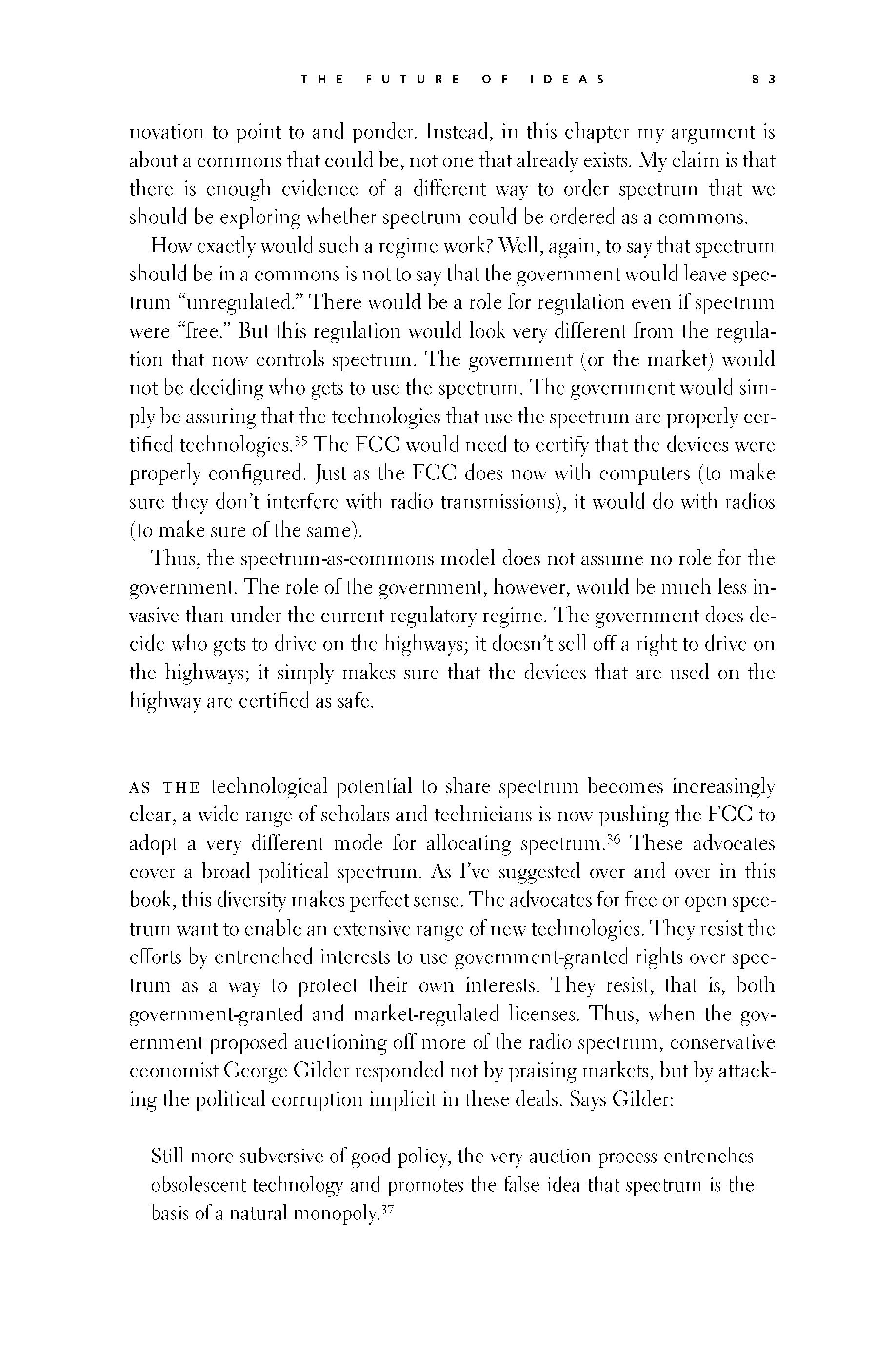 p082 _
-chap- _
toc-1 _
p083w _
toc-2 _
+chap+ _
p084
p082 _
-chap- _
toc-1 _
p083w _
toc-2 _
+chap+ _
p084
novation to point to and ponder. Instead, in this chapter my argument is
about a commons that could be, not one that already exists. My claim is that
there is enough evidence of a different way to order spectrum that we
should be exploring whether spectrum could be ordered as a commons.
How exactly would such a regime work? Well, again, to say that spectrum
should be in a commons is not to say that the government would leave spec-
trum "unregulated." There would be a role for regulation even if spectrum
were "free." But this regulation would look very different from the regula-
tion that now controls spectrum. The government (or the market) would
not be deciding who gets to use the spectrum. The government would sim-
ply be assuring that the technologies that use the spectrum are properly cer-
tified technologies.[5-35] The FCC would need to certify that the devices were
properly configured. Just as the FCC does now with computers (to make
sure they don't interfere with radio transmissions), it would do with radios
(to make sure of the same).
Thus, the spectrum-as-commons model does not assume no role for the
government. The role of the government, however, would be much less in-
vasive than under the current regulatory regime. The government does de-
cide who gets to drive on the highways; it doesn't sell off a right to drive on
the highways; it simply makes sure that the devices that are used on the
highway are certified as safe.
///\\\
As the technological potential to share spectrum becomes increasingly
clear, a wide range of scholars and technicians is now pushing the FCC to
adopt a very different mode for allocating spectrum.[5-36] These advocates
cover a broad political spectrum. As I've suggested over and over in this
book, this diversity makes perfect sense. The advocates for free or open spec-
trum want to enable an extensive range of new technologies. They resist the
efforts by entrenched interests to use government-granted rights over spec-
trum as a way to protect their own interests. They resist, that is, both
government-granted and market-regulated licenses. Thus, when the gov-
ernment proposed auctioning off more of the radio spectrum, conservative
economist George Gilder responded not by praising markets, but by attack-
ing the political corruption implicit in these deals. Says Gilder:
____ Still more subversive of good policy, the very auction process entrenches
____ obsolescent technology and promotes the false idea that spectrum is the
____ basis of a natural monopoly.[5-37]
[[83]]
p082 _
-chap- _
toc-1 _
p083w _
toc-2 _
+chap+ _
p084